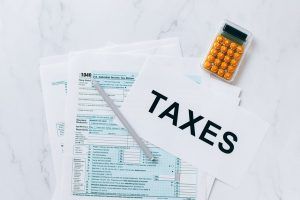Taxes may be annoying, but it’s far worse if you fail to report your rental income and get stuck with a hefty charge.
Unintentionally leaving out income tax by not claiming it is a common mistake many taxpayers make. If you don’t comply, you could face legal repercussions.
Read on to find out what not claiming rental income on taxes entails and how to avoid it.
What is Rental Income?
Rental income is money that you receive from leasing out a property. It can be anything from an apartment to a storage unit.
While it may be tempting to disregard this money on your taxes, keep in mind that rental income is a taxable income. You need to declare it on your tax return. For a complete guide, file your tax return here.
The Exceptions to the Rule
There are a few things you should know if you’re a landlord about not claiming rental revenue from your taxes. The first is that exceptions do occur to the rule.
For instance, you may be able to subtract some expenses from your rental income if you live in the house you rent out. These expenses can include your mortgage interest and property taxes.
A house rented out for fewer than 15 days a year is also excluded. The rental revenue is exempt from filing taxes.
Lastly, you can decide to defer the capital gains tax on the rental income if you’re renting out a property regarded as a capital asset. You can reinvest the earnings into another eligible rental property. An example of a capital asset is a vacation house.
The Penalties of Not Claiming Rental Income on Taxes
Not claiming rental income on taxes can result in several penalties. First, you might have to make up any unpaid taxes on the income you didn’t disclose. In addition, you may be subject to interest and penalties on the amount owed.
Second, the IRS might audit you. You will be required to provide documentation to support your income and expenses. If the IRS finds that you have understated your income tax, they could assess penalties and interest.
Finally, you may be subject to prosecution for tax evasion. It can result in fines and jail time.
To avoid penalties, keep good records of your rental income and expenses. It includes keeping receipts for all the charges related to your rental property, such as repairs, advertising, and insurance.
When declaring your income and you pay taxes, you should be truthful and precise. To avoid penalty, abide by the law.
Is It Really Worth It?
Rental income is taxable. You are technically breaking the law if you do not deduct rental revenue from your taxes.
While there are some expenses that you can deduct, such as repairs and maintenance, you can’t simply avoid them. Once caught for not claiming rental income on taxes, penalties and interest may apply.
Ultimately, whether or not it is worth it to not claim rental income on taxes depends on your circumstances. It may be worth it if you are confident that you can weather the potential consequences. However, if uncertain, it is probably wiser to be on the safe side and declare the income.
Did you find this information helpful? Check out some of our other great blogs on business and finance.